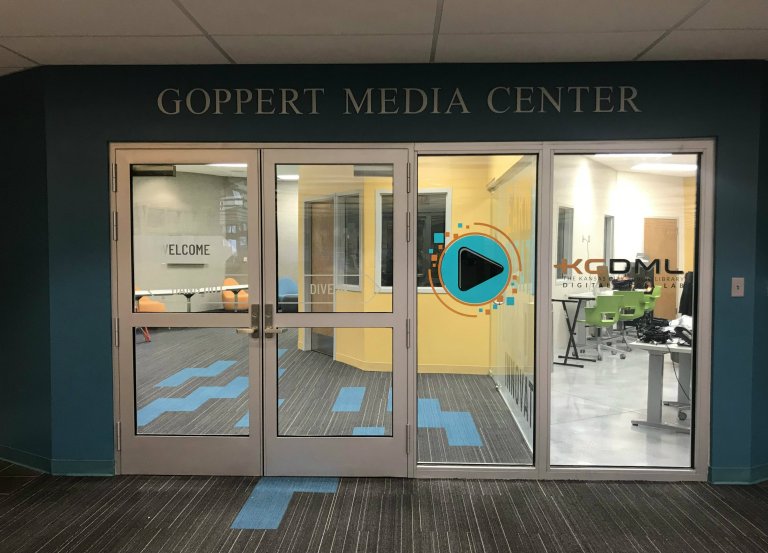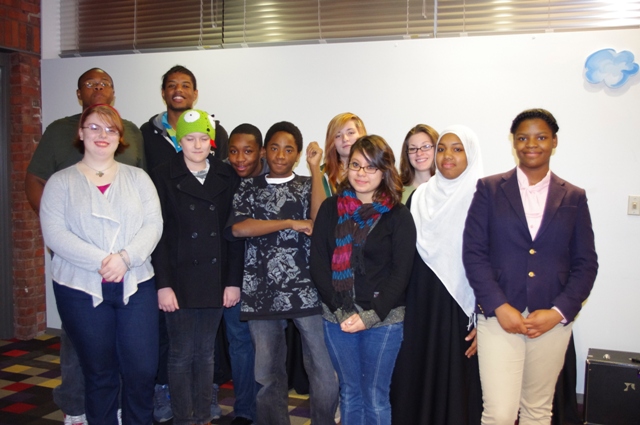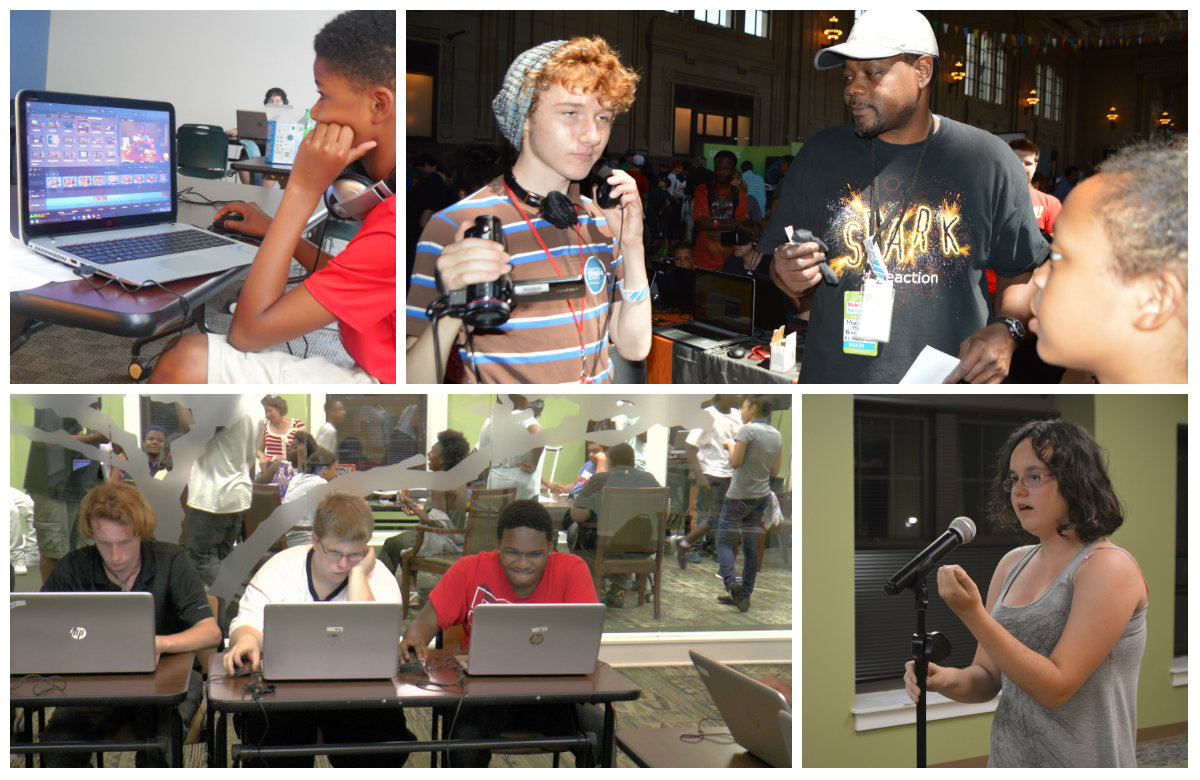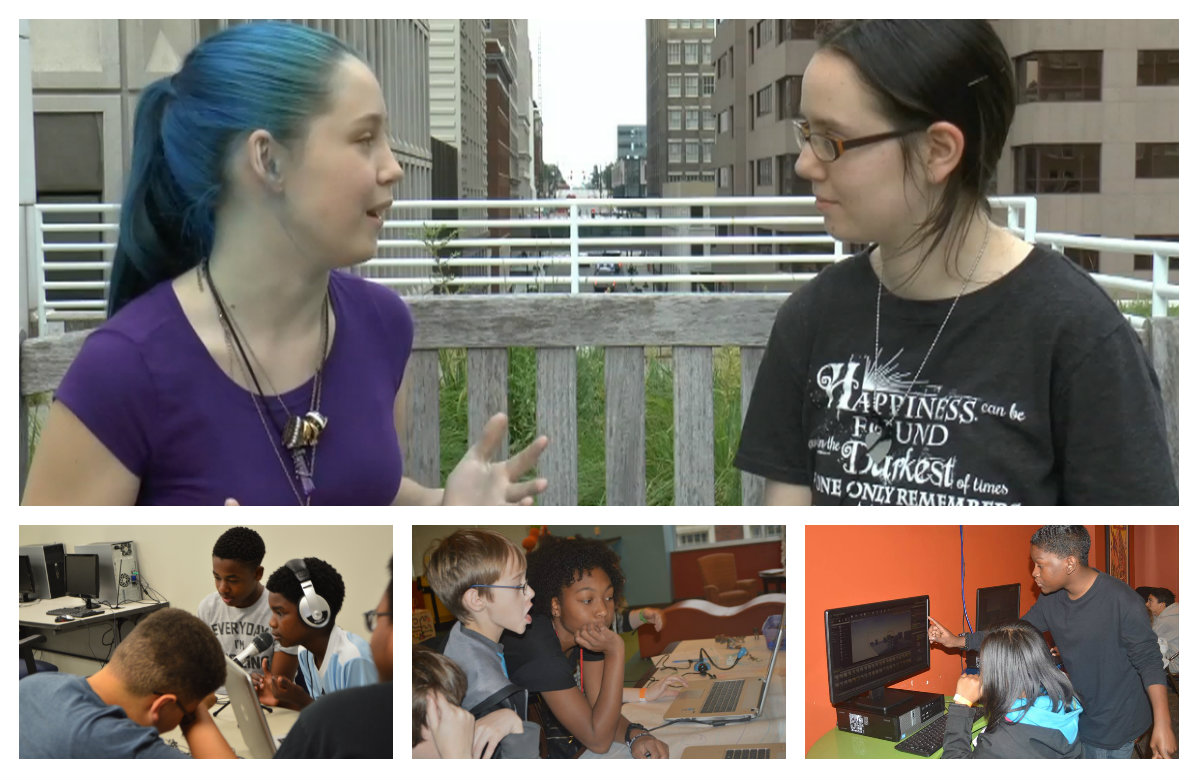
KCDML now has a dedicated home at the the Southeast Branch of the Kansas City Public Library, but it did not start out that way.
It all began in 2011 when Crystal Faris and Jamie Mayo, Director and Assistant Director of Youth & Family Engagement (YFE) respectively, secured a $100,000 grant from the MacArthur Foundation, through the Institute of Museum & Library Services. The mission was to determine the feasibility of hosting what was then termed a “learning lab” in a library or museum setting. Kansas City was one of twelve sites chosen in the country to receive the award. In the original grant the Library proposed a partnership with Science City at Union Station. The idea was that a physical space would be built at Union Station and the Library would manage a mobile component.
In 2012, Andrea Ellis was hired as the Learning Labs Coordinator to execute the eighteen month grant. This meant determining if a learning lab was a viable and desirable project for Kansas City teens, educators, the community at large, and both the Library and Science City. The original grant from MacArthur asked grantees to focus on teenagers and to ground their process in the principles of Connected Learning and HOMAGO.
A teen advisory group was established as part of the project. Applicants went through an intensive interview process. Ultimately twelve were selected (one is missing from the picture below). Each participant was paid a stipend in return for their expertise and feedback regarding the efficacy of building a learning lab, as well as its design.

At the end of the grant cycle, based on input from all of the stakeholders mentioned above, it was determined that a learning lab, or some version of it, was important for area youth. Science City decided that a maker space open to anyone that visited the museum, regardless of age, would be a best fit for them. This also meant an entry fee would be required. The Library, chose to remain focused on the teenage demographic because of the lack of safe creation spaces geared toward their unique stage of development. It also was important to the Library that access be free for all participants. The two organizations continued to support each other programmatically, but went their separate ways in terms of execution.
Andrea Ellis continued on with the Library eventually becoming the Director of Strategic Learning, a new position in YFE. In 2014, Andrea secured a substantial grant from the inaugural Kansas City Digital Inclusion Fund. The award was used to purchase equipment and to hire part-time staff to deliver training at various Library branches. Marcus Brown, now the KCDML Lead Facilitator, was hired for that role. Marcus would pack up equipment that included computers, cameras, circuits, 3D printer, etc. and travel to the branches, as well as other community organization sites, as requested.

After two years of mobile programming it was clear that although those experiences were valuable and allowed the Library to interact with a large number of youth, it did not allow for depth of interaction. At the same time the Library’s YFE department was tackling questions about the staff’s role in engaging the many teenagers that were coming to the Library. KCDML was a great way to commit to an intentional focus on youth development. The tools, resources, and expertise of the lab became simply a pathway to that end. This led to a decision to create a dedicated space for KCDML, which was important because it meant that youth always new where to find the lab. Since the Library is a drop-in space, youth may show up one week and then not again for another month. Having a home base means they can come back to it when they are ready and work on projects as it is relevant to them. It also allowed for all of the resources to remain unpacked and available as needed, which encouraged the implementation of diverse projects happening at the same time.
In 2018, KCDML opened to the public. Since that time staff has increased. Kiesha Collins started with the team as an AmeriCorps VISTA before taking on her current role as the KCDML Youth Services Librarian. She focuses on patrons 11 and younger, bringing them traditional Library services as well as creating a bridge to the resources and expertise in the lab. Kyriece DeVine started as a part-time Facilitator, but is now full-time. She is involved in every aspect of the lab, but her primary expertise is in audio engineering.

One last part of KCDML history is Team Digital. Each summer, beginning in 2015, a group of teens are selected to learn deeply about one or more of the technologies in the lab. They are provided training by KCDML staff and then challenged to create something with that learning. In addition, they are asked to share what they have learned by teaching someone else. The focus of Team Digital changes each year; it could be audio production – podcasts and music, video production – creating how-to videos, or stop motion animation, the options are endless.
